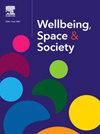Non-farm income and household welfare: Empirical evidence from a developing economy
IF 2.2
Q2 GEOGRAPHY
引用次数: 0
Abstract
The drastic changes in the global economy such as population growth, and land degradation requires alternative income sources such as non-farm income to enhance household welfare. Prior attempts to enhance welfare have been directed to industrialized economies and have paid little attention on poverty status as a proxy of household welfare. The current study sought to establish how non-farm income enhances household welfare using nationally representative panel data. The study used secondary data from most recent Uganda National Panel Survey (UNPS) waves of 2013 /2014, 2015/2016, 2017/2018, and 2019/2020. Fixed effects, random effects, and probit models were used to estimate the instrumented variables. The results indicate that non-farm income significantly enhances household welfare proxied by poverty status and consumption expenditure. Education level of the household head, household size and living in urban rather than rural significantly influences household welfare. To the best of the researchers' knowledge, this is the first study to establish how non-farm income enhances household welfare using empirical evidence from Ugandan economy which is transforming from an agricultural economy to a service economy and more specifically using poverty status and consumption expenditure as proxies of welfare.
非农业收入与家庭福利:来自发展中经济体的经验证据
全球经济的剧烈变化,如人口增长和土地退化,需要其他收入来源,如非农业收入,以提高家庭福利。以前提高福利的努力都是针对工业化经济体的,很少注意作为家庭福利代表的贫穷状况。目前的研究试图利用具有全国代表性的面板数据来确定非农业收入如何提高家庭福利。该研究使用了2013 /2014年、2015/2016年、2017/2018年和2019/2020年乌干达全国小组调查(UNPS)最新一波的二手数据。使用固定效应、随机效应和probit模型来估计仪器变量。结果表明,非农收入显著提高了以贫困状况和消费支出为代表的家庭福利。户主的受教育程度、家庭规模和居住在城市而不是农村对家庭福利有显著影响。据研究人员所知,这是第一个利用乌干达经济的经验证据来确定非农业收入如何提高家庭福利的研究,乌干达经济正在从农业经济向服务经济转变,更具体地说,使用贫困状况和消费支出作为福利的代理。
本文章由计算机程序翻译,如有差异,请以英文原文为准。
求助全文
约1分钟内获得全文
求助全文
来源期刊

Wellbeing Space and Society
Social Sciences-Social Sciences (miscellaneous)
CiteScore
2.70
自引率
0.00%
发文量
46
审稿时长
124 days
 求助内容:
求助内容: 应助结果提醒方式:
应助结果提醒方式:


